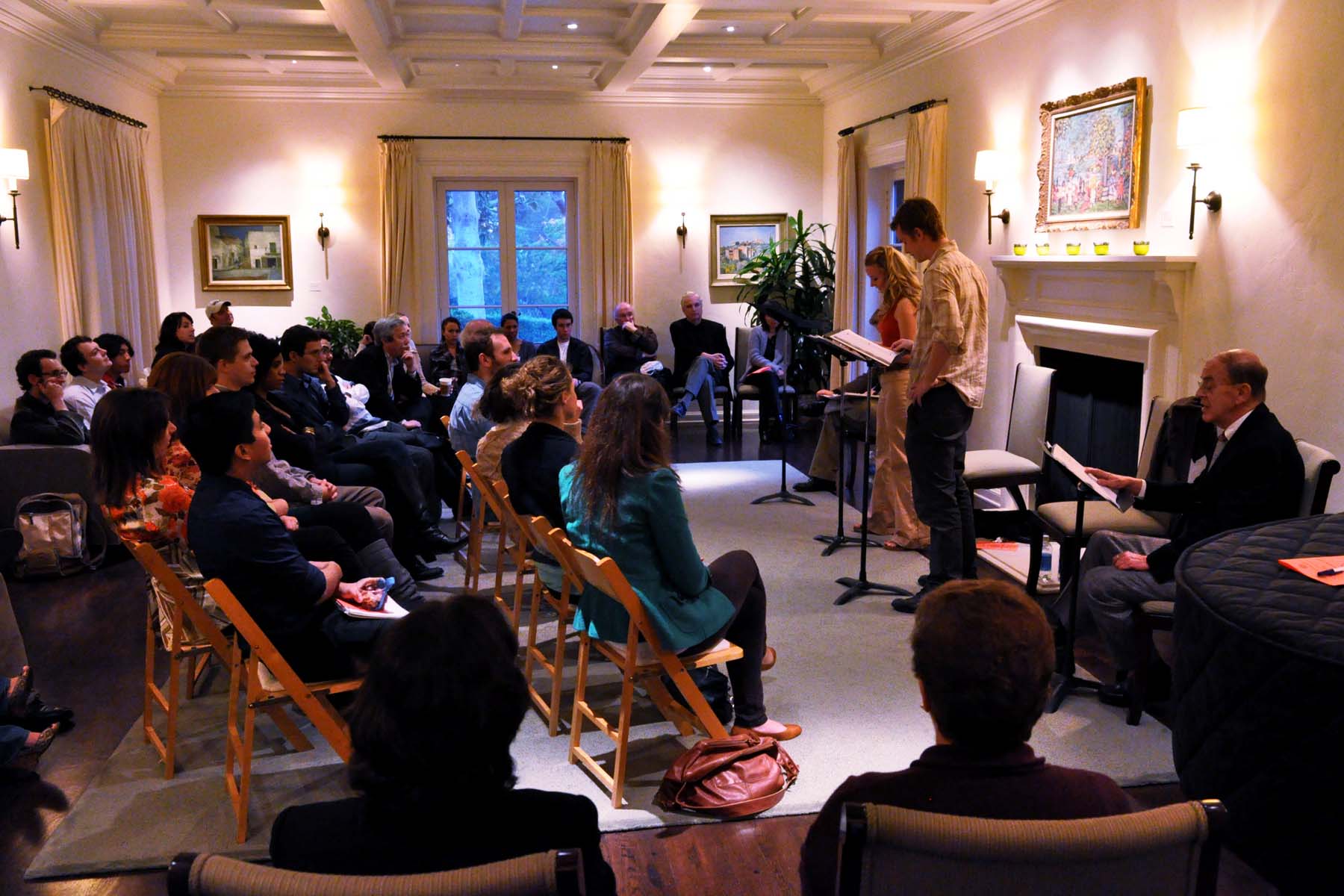The eighth Marianne Murphy Women & Philanthropy Play Reading Series kicked off Friday, Nov. 13, as members of the UCLA School of Theater, Film and Television gathered at the Chancellor’s residence.
Since its inception, the series has hosted readings for 40 student-produced plays. Originally focusing on plays written by or about women, the series has grown beyond its original intent, providing not just awareness and education, but giving a view into what some will argue is a much richer experience than other modern media.
“Movies are very fun, but they’re frozen, and the movie that was shot is the only movie you’ll ever see. But with plays, every night could be different, because the actors are living, and the audience is living,” said Edit Villarreal, chair of the MFA Playwriting Program, and associate dean of academic affairs for the School of Theater, Film and Television.
The program began eight years ago thanks to the charitable contribution of Marianne J. Murphy, a professional actress and UCLA alumna.
“I was an undergraduate at UCLA in the theater department, and when I was a student there I felt like there were not a lot of roles for women,” Murphy said. “I always had an idea that it would be nice to somehow encourage women playwrights and/or stories about women in plays.”
With Murphy’s donation, Villarreal was able to take the initial idea and mold it into the reading series it is today. The program continues the spirit of Murphy’s idea by hosting readings of plays that deal with the experiences and concerns of women.
“Historically, you have men sort of pushing action, and then women exist as props, sort of hanging in the background needing to be saved. They’re not really fully people, they’re not fully realized,” said Craig Jessen, a graduate student in playwriting whose romantic comedy, “They Met on a Monday,” was the play most recently read at the Chancellor’s residence.
The play, which will be performed fall 2010 at the New Play Festival, examines the idea of love through the relationships formed when aspiring comedian Yuri and his friend Peter meet Jane, a recent transplant to the city.
While the reading series continues to serve as an outlet for female”“centered plays, for many students, the live readings also serve as a valuable means of evaluation and review for their plays before being performed on a live stage.
“The most important thing about it is that playwrights need to hear their plays, in the air, with actors,” Villarreal said.
After the live readings, a discussion about the work usually follows. While the playwrights can use this opportunity to consider important feedback, undergraduate theater students also benefit from the session getting firsthand experience to the playwriting process.
“It’s a way for the undergraduate playwrights to not only listen to plays that the graduate students have written, but to learn that the grad students get critiqued, too,” Villarreal said.
With the readings open to the public, the series can sometimes reach those not usually affiliated with theater, serving as an accessible gateway into the art.
“The thing they’ve been saying for the last hundred years or so is that theater’s dying, theater’s dead. I think it just needs to change a bit,” Jessen said. “A reading is a very easy way for people who aren’t necessarily in theater but have an interest in pursuing it, to write something and get together.”
So while, for many people, theater may seem like a relic of the past, many others still believe in the unique experience it provides, and will be quick to correct the naysayers.
“You’re missing out if you don’t try it,” Jessen said.
